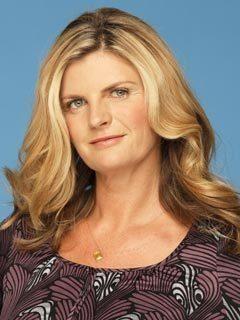


Not only did she immerse herself in the written word-mostly Scripture and poetry-and pray earnestly for her dear husband, she also began a pastors’ book fund, providing theological books for poor pastors and encouraging them in their work through correspondence. Though Susie was often at home alone with her twin sons, she found ways to worship and serve God primarily through her confinement. The weight and burden of spiritual transformation are on the Great Shepherd rather than his undershepherds, but as undershepherds, we can join him in his purposes, even within the limits he’s placed on our lives. Our value is not in performance or in our level of activity but in Christ, and therefore we have nothing to prove before man or God. Susie’s life, however, shows pastors and leaders that, ultimately, we aren’t what we do. Susie Spurgeon was, for most of her marriage and ministry, confined to her home with a chronic illness, unable to attend church alongside Charles or to interact with their congregation.
SUSANNAH FLOOD ILLNESS HOW TO
depicts a faithful life that models for pastors and leaders how to maintain soul health and ministry vitality even when facing-as the Spurgeons did-tragedy, criticism, depression, physical deterioration, and the pressures of fame. In Susie: The Life and Legacy of Susannah Spurgeon, Ray Rhodes Jr. Susannah Spurgeon, the stalwart companion to one of history’s most well-known preachers, Charles Spurgeon, is one such mentor. How had my college pastor and his wife maintained spiritual vitality while caring for others? How would we do it? I’ve been learning how to answer this question for 18 years now, and I’ve primarily found the answers by learning from the experiences of others. Despite the seminary degree, we remain limited human beings. In his book Strong and Weak, Andy Crouch refers to our “hidden vulnerabilities.” In other words, pastors and their spouses regularly meet the various needs of others while needing physical, emotional, and spiritual sustenance themselves. There’s a difference between our perceptions of leaders and the reality of who they are and what they privately face. And I’d thrown his wife in for good measure. I saw my former expectations for what they were: I’d taken a servant and tried to mold him into a savior. The thought struck me that a starry-eyed college student in the congregation might do what I’d done, imagining the two of us as mini-celebrities rather than mere humans trying to juggle the weighty responsibilities of leadership along with our uncertainties, insecurities, and besetting sins. Slowly it dawned on me that I was a pastor’s wife, the pastor’s wife, the one waiting in my folding chair to be rejoined by the preacher who stalked the elementary-school gym floor with Bible in hand and Holy Spirit in his voice. Several years after graduating college, I married a man who became a lead pastor himself, a church-planting pastor to be exact. I also wanted to see them interact, as if the perfect affection I imagined between them might cap for me the truth of the pastor’s sermon. I was strangely fascinated with labeling them in my mind as “the pastor’s wife” and “the pastor’s kids,” as if they were mini-celebrities. Occasionally, as one among thousands in the sanctuary, I’d twist in my seat, tracing his exit with my eyes, hoping to watch him rejoin the wife or the children he spoke about from the pulpit. I never considered him beyond those weekly sermons. This, in fact, was my entire perception of him: the mark he made as he stalked the stage on Sundays, Bible in hand, and the Spirit of God booming through his voice. The pastor of the church I attended in college had a strong personality, a firm handle on Scripture, and a clear gift for expository preaching.


 0 kommentar(er)
0 kommentar(er)
